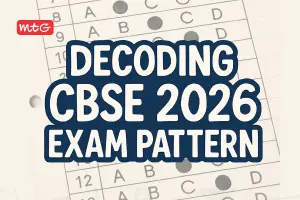
NCERT class 7 mathematics chapter 1 – “Integers” form a bigger collection of numbers which contains whole numbers and negative numbers. For the CBSE exams, practice multiple-choice questions (MCQs) to prepare for the objective questions. We have provided Class 7 MCQ Questions on “Integers” paired with comprehensive explanations. CBSE is emphasizing the role of MCQs as they assist in understanding the concepts completely.
As compared to subjective questions, MCQs are very different so practicing and understanding how to get appropriate answers in MCQs is very essential. To revise the main concepts, students should practice all the MCQs with the answers given. This will also help them familiarize themselves with the kinds of questions that might appear in the board exams.
Important – CBSE Class 7 Syllabus For 2024-25 Session
You will also like – Class 7 Math MCQ Question with Answers
Topics covered in “Integers”
- Closure under Addition
- Closure under Subtraction
- Commutative Property
- Associative Property
- Additive Identity
- Multiplication of Integers
- Multiplication of a Positive and a Negative Integer
- Multiplication of two Negative Integers
- Product of three or more Negative Integers
- Properties of Multiplication of Integers
- Closure under Multiplication
- Commutativity of Multiplication
- Multiplication by Zero
- Multiplicative Identity
- Associativity for Multiplication
- Distributive Property
- Division of Integers
- Properties of Division of Integers
CBSE Class 7 Mathematics Integers MCQs – PDF Download
Answers –
Summary for NCERT class 7 mathematics chapter 1 – “Integers”
- Integers are a bigger collection of numbers which is formed by whole numbers and their negatives.
- Integers are closed for addition and subtraction both. That is, a + b and a – b are again integers, where a and b are any integers.
- Addition is commutative for integers, i.e., a + b = b + a for all integers a and b.
- Addition is associative for integers, i.e., (a + b) + c = a + (b + c) for all integers a, b and c.
- Integer 0 is the identity under addition. That is, a + 0 = 0 + a = a for every integer a
- Integers can be multiplied and product of a positive and a negative integer is a negative integer, whereas the product of two negative integers is a positive integer.
- Product of even number of negative integers is positive, whereas the product of odd number of negative integers is negative.
- Integers are closed under multiplication. That is, a × b is an integer for any two integers a and b.
- Multiplication is commutative for integers. That is, a × b = b × a for any integers a and b.
- The integer 1 is the identity under multiplication, i.e., 1 × a = a × 1 = a for any integer a.
- Multiplication is associative for integers, i.e., (a × b) × c = a × (b × c) for any three integers a, b and c.
- Under addition and multiplication, integers show a property called distributive property. That is, a × (b + c) = a × b + a × c for any three integers a, b and c.
- The properties of commutativity, associativity under addition and multiplication, and the distributive property help us to make our calculations easier.
- When a positive integer is divided by a negative integer, the quotient obtained is a negative integer and vice-versa.
- Division of a negative integer by another negative integer gives a positive integer as quotient.




























